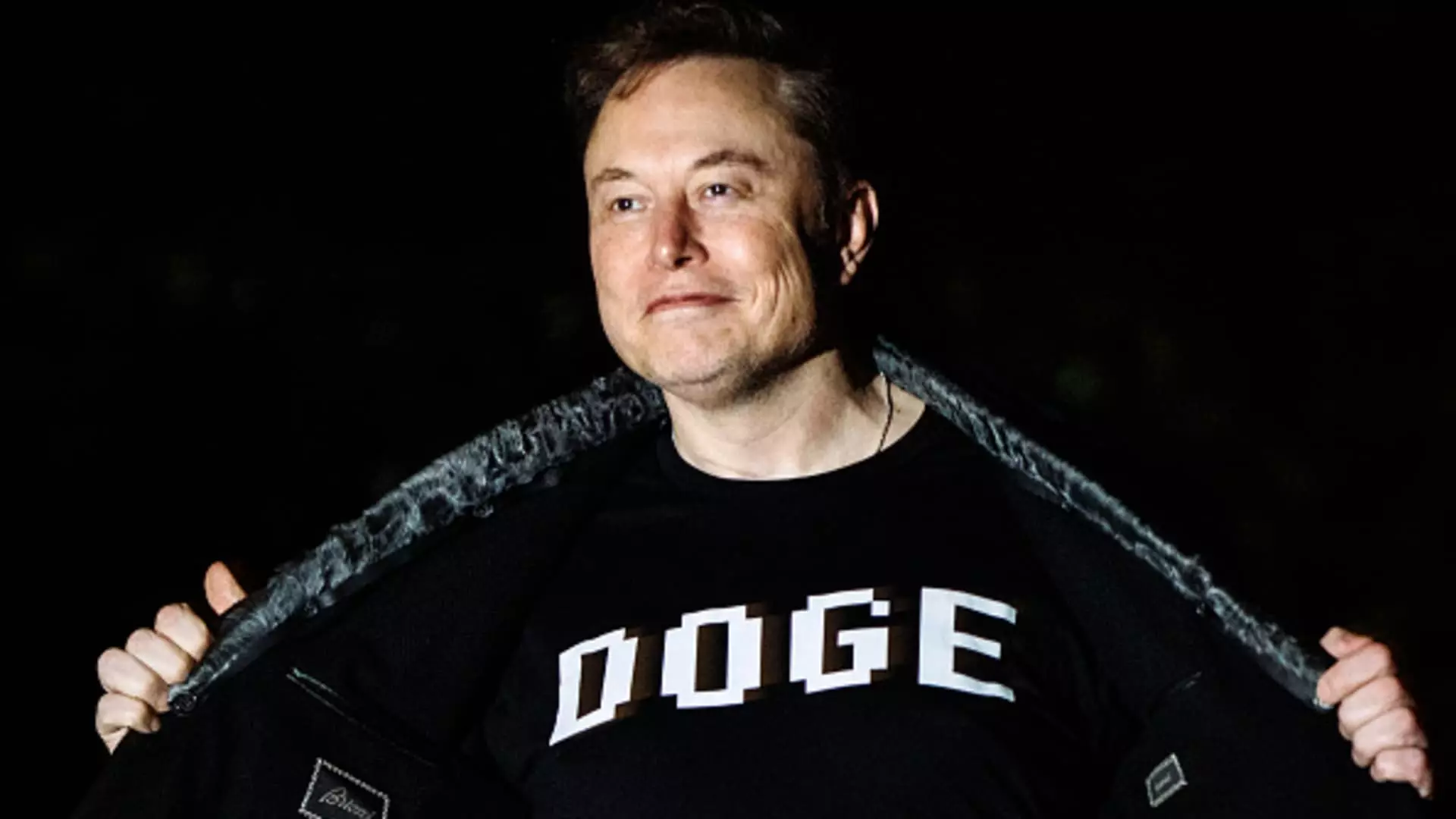Tesla’s stock experienced a brief uplift recently following speculation that CEO Elon Musk may step down from his advisory role at the Department of Government Efficiency (DOGE). Politico’s report hinted at Musk’s potential return to the electric vehicle (EV) manufacturer at a time when Tesla’s stock remains vulnerable, reflecting broader volatility in the market. Though the White House hastily dismissed this report as “garbage”, the mere mention of Musk refocusing on Tesla sparked a momentary surge in share prices, underscoring the unpredictable interplay between Musk’s public persona and his business ventures.
Musk’s involvement in political spheres could be viewed as both a strategic leveraging of influence and a possible distraction that negatively impacts Tesla. His role in a government agency moderates public perception and market confidence, particularly as the company grapples with significant challenges, including declining vehicle deliveries and increasing operational scrutiny. As Wall Street weighs the implications of Musk’s fluctuating commitments, the uncertainty becomes palpable, not just for investors, but for consumers and employees who rely on Tesla’s stability.
Stock Performance: A Reflective Narrative
Despite the recent uptick, Tesla’s stock performance overall remains concerning. The shares have plummeted more than 31% year-to-date and a staggering 36% in the first quarter—the worst quarterly loss since 2022. Initial reports suggested a drop of 6.4% in response to disappointing delivery figures, indicating that investor sentiment is fragile, piqued by more than just Musk’s extracurricular activities. The fluctuating rates can be likened to the challenges Tesla faces as it pivots between aggressive growth strategies and rising operational costs amid intense competition in the EV landscape.
Additionally, Musk’s political engagements have resulted in significant backlash against the Tesla brand itself. Reports of protests and moves toward boycotts illustrate the complexities of intertwining business with political endeavors, as Musk’s statements and affiliations rub some consumers the wrong way. This disconnect is noteworthy; even with advances in technology, a company’s reputation can suffer if its leadership is embroiled in controversy, potentially alienating customers who prefer brands that project values aligned with their own.
The Political Consequences of Musk’s Actions
Elon Musk’s engagement in political campaigns, especially in contentious environments such as Wisconsin, raises eyebrows about his priorities and potential conflicts of interest. Musk’s active support for a Republican judge, while investing significant sums in campaigning, has drawn ire from the opposing side, leading to criticisms of his influence over public opinion and electoral outcomes. Critics argue that this diversion of focus—using a platform meant for entertainment and innovation for political pursuits—could distance Musk from the core competencies that initially drove Tesla’s success.
Moreover, the emerging pressure from New York City’s leadership to hold Musk accountable on behalf of investors underscores a growing trend where corporate actions are under heightened scrutiny. Such legal challenges present further complications for Tesla’s leadership and public impact, highlighting that Musk’s dual existence as a tech mogul and political influencer poses substantial risks.
In a landscape where corporate integrity is paramount, the balancing act for Musk becomes increasingly precarious. As stockholders and stakeholders seek clarity and commitment, the looming uncertainty of his divided focus raises critical questions about Tesla’s trajectory moving forward.

